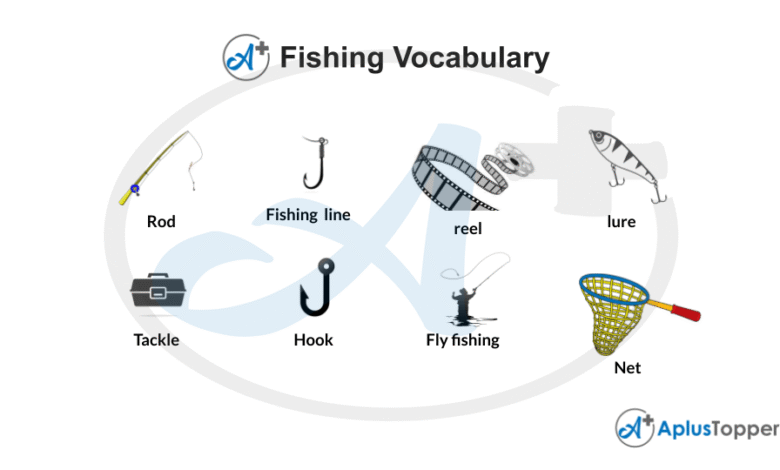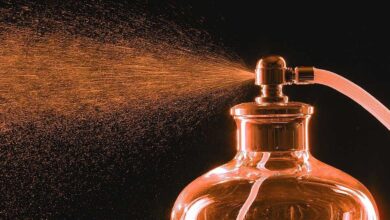Fishing Terms: Do You Really Know the Language of Anglers?

Have you ever gone fishing with a friend and realized halfway through the trip that you didn’t understand half the words they were saying? Maybe they shouted, “Set the drag! He’s making a run for the drop-off—don’t get snagged!” and you just smiled, pretending you knew exactly what they meant. If that sounds familiar, you’re not alone. Fishing isn’t only about rods, reels, and patience—it comes with a vocabulary all its own.
This angling language has been built over centuries, passed down from seasoned fishermen to beginners on riverbanks, piers, and boats. The fun part is, once you understand these terms, you don’t just sound like an insider—you also fish better. Let’s unpack this world of fishing terms in a friendly, easy-to-follow way.
Why Fishing Terms Matter More Than You Think
At first glance, fishing seems simple. You put bait on a hook, throw the line in, and wait for a fish. But seasoned anglers know it’s not that straightforward. The sport has layers of strategy, observation, and technique, all of which are described through its vocabulary.
When you learn fishing terms, you:
- Catch on faster when others explain techniques.
- Avoid rookie mistakes, like setting the hook too early or casting into cover you don’t understand.
- Communicate clearly, whether you’re teaching, learning, or just swapping stories after a trip.
- Feel part of the culture, which is half the fun of being an angler.
So instead of feeling lost, you’ll be able to follow along when people talk about drifts, lunkers, and strikes.
The Basics: Gear Every Angler Talks About
Let’s start with the equipment. These are the core terms you’ll hear from day one.
- Rod – The backbone of fishing. It’s the long pole used to cast and control the line.
- Reel – The round mechanism attached to the rod that stores and releases the line.
- Line – The string-like thread that connects you to the fish.
- Hook – The small piece of sharp metal designed to catch and hold a fish.
- Sinker – A weight used to pull bait down to the right depth.
- Bobber – Also called a float, it sits on the surface and signals when a fish bites.
- Lure – An artificial bait designed to mimic prey.
- Live bait – Actual food, such as worms or minnows, used to tempt fish.
Without these basics, it’s hard to even start a conversation about fishing.
Casting Terms: How You Send the Line Out
Casting is an art, and anglers have plenty of ways to talk about it.
- Cast – Simply throwing the line into the water.
- Overhead cast – The classic move where the rod goes behind your head and forward again.
- Sidearm cast – Casting low and sideways, often for accuracy in tight spaces.
- Pitching – A short, soft cast that drops bait quietly into close cover.
- Flipping – Similar to pitching, but used for precise, repeat placements.
- Backlash – A tangled mess of line, often caused by an uncontrolled cast.
Knowing these terms helps you understand that casting isn’t random—it’s targeted and intentional.
Terms About Fish Behavior
Fish aren’t just sitting around waiting to be caught. They behave in ways that anglers study and describe with specific words.
- Strike – The moment a fish goes after the bait.
- Nibble – A cautious, small bite where the fish is testing.
- Hookset – The action of pulling the rod to drive the hook into the fish’s mouth.
- Run – When a fish speeds away after being hooked, pulling line from the reel.
- Jump – When a fish leaps out of the water to shake off the hook.
Understanding these words makes you more aware of what’s happening beneath the surface.
Talking About Water and Structure
Fish live in environments with plenty of hiding spots, and anglers describe them with these terms:
- Cover – Anything fish use to hide, like logs, weeds, or docks.
- Structure – The underwater landscape, such as rocks, ledges, or drop-offs.
- Drop-off – A steep change in depth that attracts fish.
- Weed bed – An underwater “forest” of plants where fish find shelter.
- Channel – The deeper path where water flows and fish travel.
These terms are essential for finding fish. Once you know them, you’ll start to see the water in a whole new way.
Lures and Hook Vocabulary
Lures and hooks deserve their own section because there are so many types.
- Treble hook – A hook with three sharp points.
- Jig – A lure with a weighted head, often bounced along the bottom.
- Spinnerbait – A flashy lure with spinning blades that attract fish.
- Crankbait – A lure shaped like a small fish, designed to dive and wobble.
- Topwater lure – A lure that floats, designed to trigger surface strikes.
Choosing the right lure or hook is part of the fun—and part of the challenge.
Fighting and Landing Fish
Hooking a fish is only half the battle. Getting it in the boat or onto shore is another story.
- Drag – The setting on your reel that controls resistance when the fish pulls.
- Play the fish – The process of tiring the fish before reeling it in fully.
- Landing – Successfully bringing the fish out of the water.
- Netting – Using a net to scoop up the fish.
- Release – Letting the fish go back into the water, often practiced for conservation.
Every angler remembers the thrill of a good fight, and these words capture the excitement.
Angler Slang and Fun Terms
Fishing also comes with playful slang that makes conversations more colorful.
- Lunker – A huge fish worth bragging about.
- Bucketmouth – A nickname for largemouth bass.
- Skunked – A fishing trip where you catch nothing.
- Hotspot – A location where fish are biting steadily.
- Trophy fish – A catch so impressive you’ll tell the story for years.
These words bring humor and personality into fishing conversations.
Weather and Water Condition Terms
Conditions play a huge role in fishing success.
- Current – The flow of water that influences bait movement.
- Tide – The rise and fall of sea level in saltwater fishing.
- Clarity – How clear or murky the water is.
- Chop – Small waves caused by wind.
- Thermocline – The layer of water where temperature changes sharply, often attracting fish.
Recognizing these conditions—and knowing how to talk about them—makes you a smarter angler.
Fly Fishing Vocabulary
Fly fishing has its own rich set of terms that can seem confusing at first.
- Fly – A lightweight lure made from feathers and thread.
- Leader – The section of line between the fly and the main line.
- Tippet – The fine end piece of the leader.
- Drift – The natural float of the fly along the current.
- Roll cast – A casting style used when space is tight.
Fly fishing terms reflect the artistry of this specialized style of fishing.
Ice Fishing Terms
If you’ve ever been ice fishing, you’ve heard a different vocabulary altogether.
- Auger – A tool for drilling holes through ice.
- Tip-up – A device that signals when a fish bites beneath the ice.
- Shanty – A small shelter that protects anglers from the cold.
- Jigging rod – A short rod made for ice fishing.
- Slab – A big panfish often caught through the ice.
Ice fishing has its own culture, and its terms highlight the unique experience of fishing in winter.
The Role of Terms in Fishing Stories
Half the fun of fishing is telling stories afterward. The words anglers use—strike, lunker, skunked—make the tales come alive. Without these terms, fishing stories wouldn’t carry the same humor, drama, or pride.
Language is what connects anglers across generations. Whether you’re ten years old catching your first perch or sixty years old landing your biggest bass, the terms you use put you in the same circle as everyone else who loves the water.
Final Thoughts on Fishing Terms
So, do fishing terms really matter? Absolutely. They’re not just words; they’re part of the identity of fishing. They make conversations richer, stories livelier, and techniques easier to understand.
The next time you head out on the water and someone says they got skunked near a weed bed but hooked a lunker on a spinnerbait the day before, you’ll smile. Because now, you’ll know exactly what they mean.
Fishing terms are more than vocabulary. They’re a connection to a tradition, a culture, and a shared love for the sport. And the more you learn, the deeper that connection becomes. fishing terms



